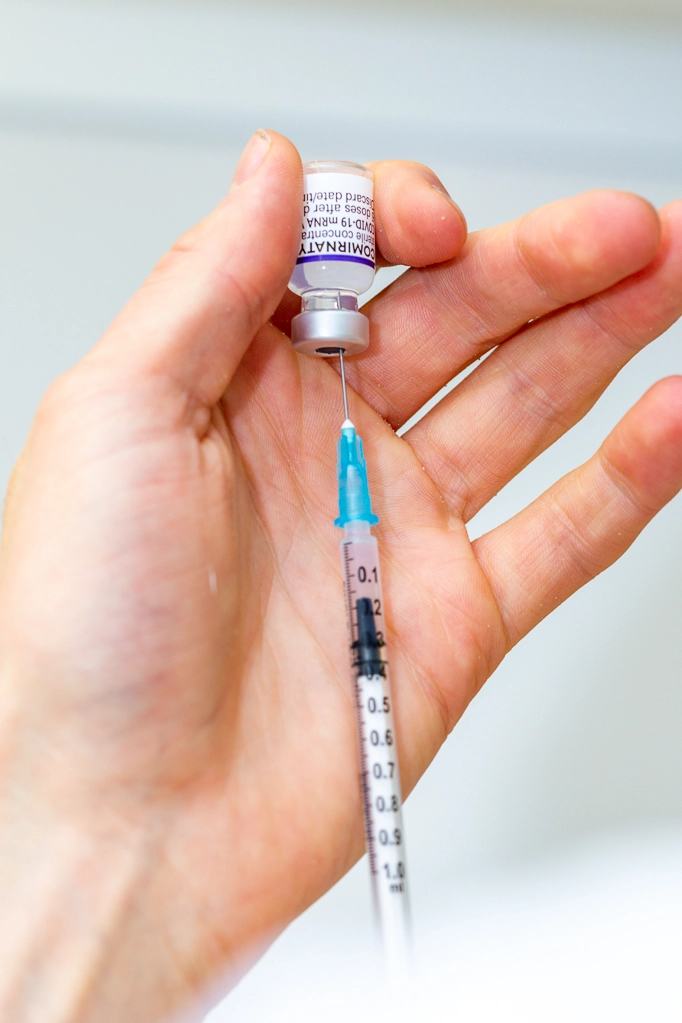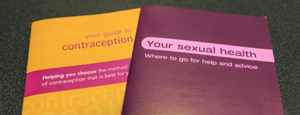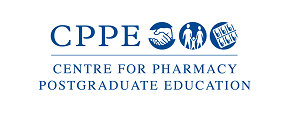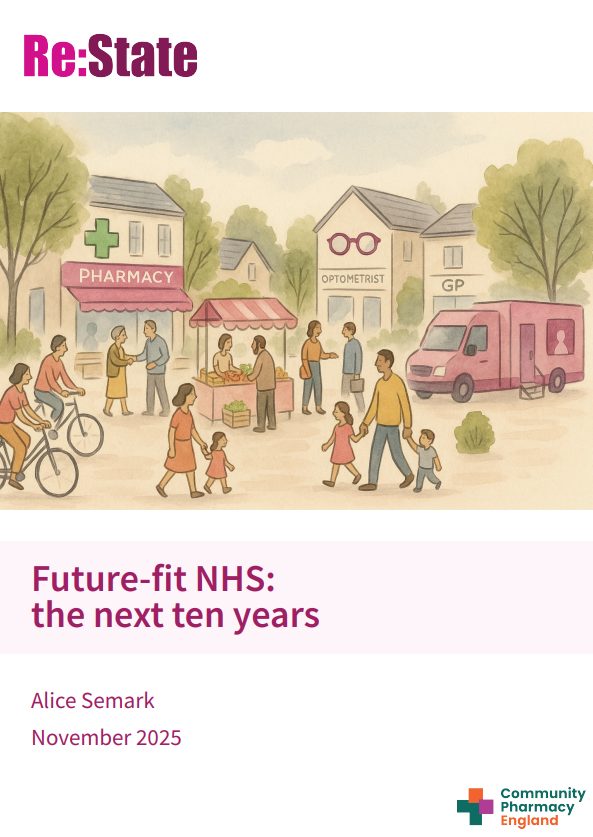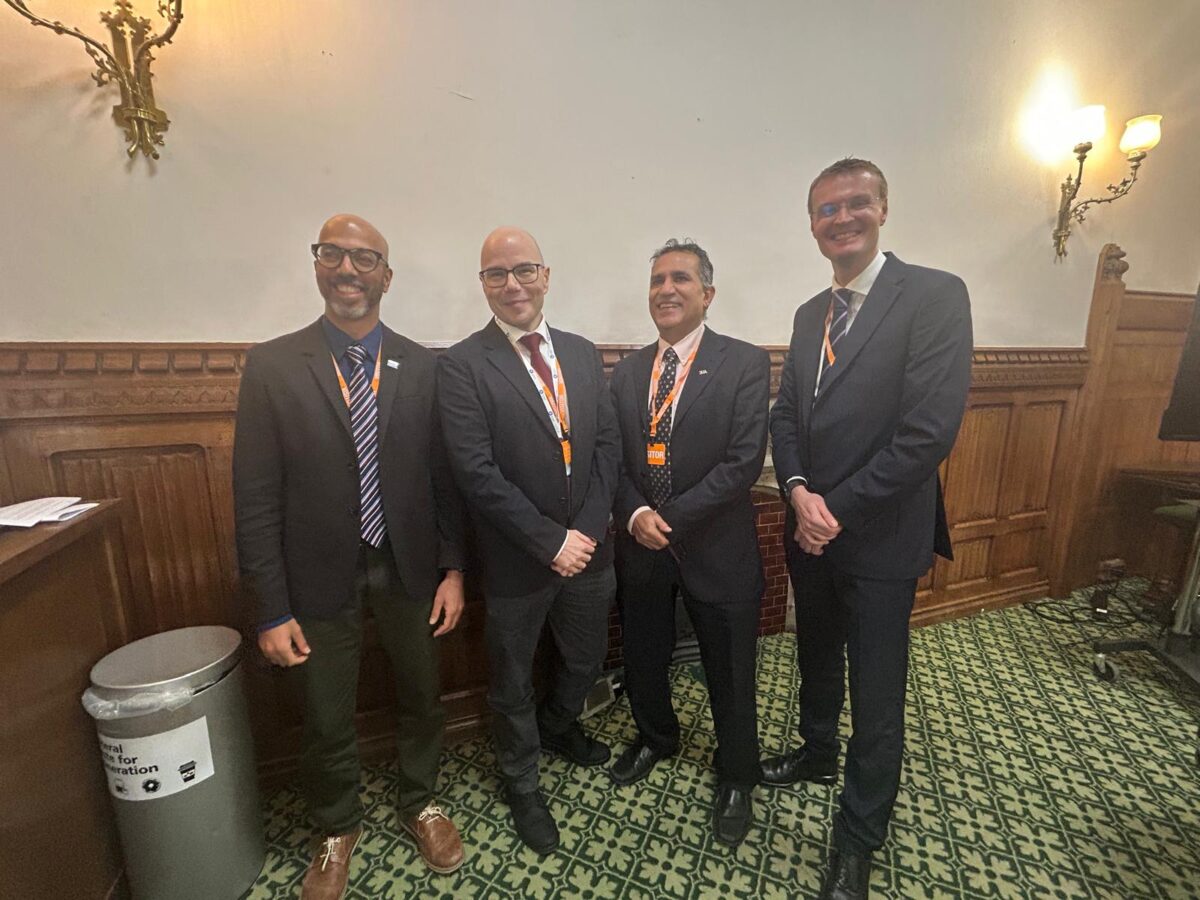Disposal of unwanted medicines
Published on: 10th July 2013 | Updated on: 12th December 2024
Community pharmacy owners are obliged to accept back unwanted medicines from patients.
The local NHS contract management team will make arrangements for a waste contractor to collect the medicines from pharmacies at regular intervals.
The pharmacy owner must, if required by the local NHS contract management team or the waste contractor, sort them into solids (including ampoules and vials), liquids and aerosols; the waste contractor will be able to advise on whether this is necessary. Additional segregation is also required under the Hazardous Waste Regulations.
Read the disposal of unwanted medicines service specification
Please note that changes to environmental legislation and policy have occurred since the publication of the service specification.
Click on a heading below for more information
NHS England makes arrangements for the collection and disposal of waste medicines from pharmacies.
Pharmacy owners should contact the NHS England appointed waste contractor regarding any queries related to the collection of waste.
Your Local Pharmaceutical Committee or the local NHS contract management team will be able to provide the contact details of the waste contractor.
From 1st October 2010 some producers of healthcare related waste have been required to assess the composition of the waste they produce and inform their waste contractor, in order to assist in its safe collection and disposal.
The Environment Agency has prioritised the applicability of this requirement, based on risk, and so pharmacy owners have been subject to these requirements from 1st July 2013. Waste contractors will be unable to collect waste from a pharmacy until it has been satisfied that an audit has been carried out, to identify the waste streams and so that it can ensure appropriate disposal.
These requirements are detailed in the document 07-01 Safe Management of Healthcare Waste, available from the Department of Health and Social Care. Pages 170-184 apply specifically to community pharmacy, and pharmacy owners will find references to the pre-acceptance audits elsewhere in the document. The Environment Agency has also published a briefing note for producers of waste which pharmacy owners may find helpful.
With the assistance of the Environment Agency and The Co-operative Pharmacy, Community Pharmacy England has developed a Pre-Acceptance Waste Audit Tool. This is based upon a similar template prepared with the assistance of the Environment Agency for general practitioners.
This Tool is designed to support a practical audit which will allow pharmacies to identify all waste streams in their pharmacy, including patient returned medicines and waste produced by the pharmacy. The use of this particular tool is not mandatory. As part of the pre-acceptance audit process, pharmacists will need to assess waste in all parts of their pharmacy.
Waste Contractors may offer (for a fee) to provide support in carrying out a waste audit at the pharmacy, but there is no obligation to accept such offers. Whoever conducts the audit, it is the pharmacy owner that is responsible for its accuracy and completeness.
Note: Pharmacy owners should be aware that from 1st July 2013, waste contractors may not be able to collect waste from community pharmacies who haven’t submitted a pre-acceptance audit.
Completing the audit
Once this has been completed, the audit should be sent to your waste contractor.
The audit can be printed and completed by hand, or can be completed on your computer. Page one and two are an introduction to the audit, which should be read first.
Page 3 sets out details about the pharmacy location, ownership and the details of the audit.
The Audit Report Sheet on page 11 should be completed for each room or area of the pharmacy – an example is included, which would be expected in a dispensary. Create extra copies of this report for each area examined.
Page 12 contains an Audit Summary Sheet which should be used to combine the container types found during the previous stage.
Page 13 should be completed identifying from the Summary Report Sheet, the different waste streams, along with the hazards associated with them, and the disposal options. Again, examples are included. Page 14-16 sets out details about Hazardous waste, which may be useful to allow the pharmacy to identify and segregate hazardous waste.
The Audit Findings – Composition Questions should then be completed on pages 6-10. These questions allow pharmacy owners to identify segregation practices, and assist in the clarification and description of waste.
Finally, the Audit Findings should be completed on pages 3-5. These summarise the information collected in the other sections of the audit.
Recycling
The environmental legislation now seeks to increase the amount of recycling that takes place and the audit should enable pharmacy owners to identify any waste that is suitable for recycling (such as cardboard from pharmaceutical packaging and glass bottles). However, medicines should never be removed from their blister packaging, although pharmacy owners are encouraged to recycle the cardboard packaging (once patient-identifiable information has been removed).
During the course of the development of the audit tool, the Environment Agency confirmed that there is no absolute prohibition to rinsing liquid medicines such as methadone into the sewer system, but that this is dependent on obtaining approval from the water authorities. Approval has to be sought on an individual premises basis, because consent is dependent not only on the amount of waste to be discharged to the sewer, but also to the consents already granted to waste producers upstream and downstream of the premises. If consent has not been granted to discharge limited amounts of liquid waste to the sewer, then bottles which are contaminated with medicines should not be rinsed out. Instead, they should be disposed of with other medicines waste.
Community Pharmacy England has worked with the Department of Health and Social Care (DHSC), the Environment Agency and others, to prepare guidance for pharmacies, which is set out in Health Technical Memorandum 07-01: Safe management of healthcare waste. Within the document is a sector guide for community pharmacy (page 127).
Government guidance on Waste legislation and regulations
Government guidance on classification of healthcare waste
Waste duty of care: code of practice
Community Pharmacy England guidance on pre-acceptance waste audit
Waste Medicines Health and Safety Briefing
Community Pharmacy England recommends that pharmacy staff should question people returning medicines to ensure there are no items in the returns which the pharmacy cannot safely dispose of, for example, chemicals or products that may be incompatible with others in the waste bin. In order to facilitate this discussion with the person returning the medicines, pharmacies may wish to use the following prompt card:
Unwanted Medicines Card (PDF)
Unwanted Medicines Card (Microsoft Word)
The card is based on a Lloydspharmacy document; Community Pharmacy England is grateful to Lloydspharmacy for allowing the modification of their document so that it may be used by all pharmacies.
In 2016, NHS England agreed a new national framework agreement for the collection and disposal of waste medicines, and, as previous contracts expired, Anenta Limited began to be contracted to manage the collection and disposal of waste medicines. Anenta manages NHS England’s supply chain and contracts for the collection of relevant waste types and should be considered the main contact point in the designated regions. Anenta does not physically collect the waste itself. More information can be found in our news story.
These FAQs are currently under review and this Health Technical Memorandum 07-01: Safe management of healthcare waste is currently under review.
Q. Where can I get a list of hazardous medicines?
An example list of hazardous waste from an NHS hospital has been prepared and can be found within Health Technical Memorandum 07-01: Safe management of healthcare waste (pages 167-168)
Q. I have been told that I must undertake a pre-acceptance audit before my waste contractor can collect unwanted medicines from my pharmacy. The waste contractor has offered to undertake the audit on my behalf, but there is a charge. Is this required?
The requirement to submit a pre-acceptance waste audit came into force on 1st July 2013. Waste contractors may offer (for a fee) to provide support in carrying out a waste audit at the pharmacy, but there is no obligation to accept such offers. Whoever conducts the audit, it is the community pharmacy owner that is responsible for its accuracy and completeness.
Q. Can medicines be returned to a pharmacy from GP practices and nursing homes?
Yes. The exemption for the temporary storage of waste in pharmacies does not differentiate between the different sources of waste. But there are a number of factors that must be taken into account:
First, there has been no change to the service specification for Disposal of unwanted medicines. This means pharmacies are only obliged to accept unwanted medicines from households (including residential homes). As NHS England’s obligation to arrange disposal of waste extends only to the Essential service, it follows that NHS England may decide that it will not fund the removal from pharmacies of waste originating from nursing homes/GP practices, etc. If a pharmacy does decide that it will accept such waste, check with NHS England whether this can be included in the NHS England arranged waste disposal.
Secondly, waste from these sites is subject to stringent controls:
- Hazardous waste medicines and mixed medicines of unknown composition must be consigned from these premises to the pharmacy using a hazardous waste consignment note;
- The pharmacy receiving hazardous waste is a ‘consignee’ and must keep a register, a site inventory, send consignee returns to the producer, and consignee returns to the Environment Agency. Each consignment received is subject to a charge;
- Hazardous waste controls apply to all movements of hazardous waste between non-domestic premises, even if they are part of the same company or organisation; and
- Non-hazardous medicines must be transferred to the pharmacy under Duty of Care controls, including a waste transfer note.
There may be additional obligations on pharmacies accepting this waste, and as this is not an NHS pharmaceutical services activity, advice should be sought from the Environment Agency.
Q. I have tried to renew my registration of exemption for the storage of waste, but the Environment Agency say this is not required – is this correct?
Yes. Pharmacies are now automatically exempt from the need to hold environmental permits (the successor to waste management licences) where they are temporarily storing waste for the purpose of transferring the waste elsewhere for disposal. The conditions that apply include:
- The waste must be stored in secure containers;
- No more than 50 cubic metres of solid waste can be stored;
- The waste cannot be stored for longer than three months;
- The service is not provided as a waste management service (e.g. you do not receive payment for the service);
- The waste must not have a flash point of less than 21oC.
Q. I have been told that I must register with the Environment Agency if I denature controlled drugs. Is this correct?
Yes. This is known as a ‘T28’ exemption. Registration of this exemption is straightforward, and can be completed on-line on the Environment Agency’s website.
Q. The exemption for denaturing controlled drugs says that it is valid only for controlled drugs produced on the premises. Can I accept and denature controlled drugs from households?
Yes. The Environment Agency has published a regulatory position statement, which confirms that it will not take regulatory action in relation to the denaturing of controlled drugs returned from households.
Q. Can obsolete dispensing stock be disposed of via the NHS England funded waste collection route?
Yes. Community Pharmacy England agreed with DHSC and the NHS Confederation when the service specification was agreed, that obsolete stock that was held to fulfil NHS prescriptions could be disposed of via the NHS funded waste collections. The service specification contains the following paragraph:
3.1.6 Waste medicines produced in the pharmacy (which were held in stock to fulfil NHS prescriptions) can be disposed of via this route, but they should be stored in separate containers from waste returned from households and individuals. The Special Waste Regulations 1996 (as amended) indicate that an establishment which collects special waste shall not mix different categories of waste nor mix special waste with waste which is not special waste (see the next FAQ for updated information on separation of stock).
Q. The waste contractor who collects waste from my pharmacy has not left me any transfer or consignment notes because he says he no longer needs to do so, is this right?
No. A pharmacy is likely to produce both hazardous and non-hazardous medicines:
Hazardous Medicines
Cytotoxic and cytostatic medicines are automatically hazardous waste. A list of hazardous waste is available in 07-01 Safe Management of Healthcare Waste (pages 219 -.221)
For hazardous waste, a hazardous waste consignment note must be completed. The legal obligation to consign the waste, and complete sections A, B and D of the consignment note, rests with the pharmacy. The waste contractor may offer advice on this. The pharmacy should not permit the waste contractor to remove hazardous waste from the pharmacy unless a consignment note has been produced, and a copy retained at the pharmacy.
At the end of each quarter, the waste contractor must notify the Environment Agency of hazardous waste consignments and is required to submit a return to the pharmacy. Pharmacies should check that all the records are complete and retained at the pharmacy for three years.
Non-hazardous medicines
For non-hazardous waste, (which will comprise most of the waste medicines returned to and produced by pharmacies by patients) a duty of care transfer note is required.
Where waste is transferred from one party to another a transfer note must be completed, signed and kept by the parties to the transfer. The current holder of the waste, the pharmacy, is responsible for ensuring that a transfer note (containing the required information) is provided to the carrier.
While all transfers must be documented, the regulations do not require each individual transfer to be separately documented. Where a series of transfers of waste of the same description is being made between the same parties, provision is made for the parties to agree a “season ticket” – i.e. one transfer note covering a series of transfers. Advice on this is provided by the statutory Duty of Care Code of Practice which available in the ‘Government Guidance’ section relating to Duty of Care on the Environment Agency website.
Q. I have heard that segregation of waste is no longer necessary, is this true?
Community Pharmacy England and DHSC have worked together to clarify the requirements with DEFRA and the Environment Agency. With regard to segregation of waste, not all incinerators can handle aerosols, therefore, in some situations, the waste contractor, or NHS England may ask that the waste is segregated into aerosols, liquids and solids (including ampoules/vials). Unless the waste contractor or NHS England request segregation, all the waste medicines can be placed in the same container provided, so long as this does not risk contact between incompatible products. See also the guidance in Safe Management of Healthcare Waste (link above).
Q. Who is in charge of waste collections – who will pay for it?
NHS England must make arrangements for collection of waste from the pharmacy for medicines returned from households (including from residential homes) and stock held in the pharmacy for dispensing purposes, and they will pay for that. Pharmacy owners will need to purchase CD denaturing kits, (the negotiated Essential services funding, includes an element to reflect these costs) but all other costs fall to NHS England.
Q. Can my pharmacy accept back waste medicines from a hospice?
Possibly. For any premises occupied by a charity and wholly or mainly used for charitable purposes, its waste is to be treated as if it is household waste, and this can be returned to a pharmacy. If the hospice is not operated by a charity, and is, for example, registered as a care home providing nursing care, then its waste medicines can be returned to a pharmacy but it is not part of the Essential service, and NHS England may decide not to make arrangements for its removal.
Q. Does this mean I am obliged to accept sharps?
No. The Disposal of unwanted medicines Essential service does not impose an obligation on pharmacies to accept sharps (needle and syringe programmes are a locally commissioned service). Before accepting sharps, pharmacy owners should ensure that there are suitable arrangements for their disposal.
Q. When tablets/capsules are returned in tablet bottles, is the emptying of these bottles regarded as waste treatment?
Yes. As with ‘de-blistering’ this should be avoided and the tablets/capsules should remain in the tablet bottle and the bottle itself should be placed in the waste container provided by the waste contractor. This also helps to ensure that incompatible products are not mixed, which could present a danger to the pharmacy or the waste contractor.
The exception is for controlled drugs, where it is necessary to remove the solid dosage form from the blister strip or tablet bottle in order to render the drug irretrievable (i.e. denature the drug).
Q. My pharmacy has not been provided with a hazardous waste bin – what should I do?
Contact your local NHS contract management team to ensure that an appropriate container is provided.
Q. Can I accept waste from patients in a care home that has both residential and nursing patients (formerly termed a ‘dual-registered’ home)?
Yes, but see the FAQ above related to nursing homes.
Q. Do I have to register being exempt from registration as a hazardous waste producer, or need proof of my exempt premises status from the Environment Agency?
There is no requirement for a hazardous waste producer, who is exempt from the requirement to notify their premises, to register this with the Environment Agency. The Environment Agency is unable to provide confirmation that a producer is exempt. This is because the Hazardous Waste Regulations provide that certain hazardous waste producers are automatically exempt from having to register if they produce less than 500 kg of hazardous waste in any period of twelve months. It is only the hazardous waste producer who is able to confirm at any particular time whether he is properly exempt.
Q. How will a waste carrier know that the premises of a hazardous waste producer is exempt?
As noted above, the Environment Agency is unable to provide confirmation that a producer is exempt. Where a waste carrier is to collect waste from exempt premises, he must be satisfied that the producer is properly exempt. The Environment Agency advises that a carrier should secure a written statement from the producer that the premises will be properly exempt (at the time that the carrier is to collect their waste) from the need to notify their premises. If the waste contractor has moved several small consignments from the same premises within a twelve-month period which it ought to know takes it over the 500kg limit, the waste contractor should raise this with the producer. Regulation 22(1) of the Hazardous Waste Regulations makes it an offence for a carrier to remove or transport hazardous waste from any premises that, at the time of removal, are not either notified premises or properly exempt.
Q. Do I need to denature controlled drugs returned from patients before I place them in the medicines waste bin?
Any controlled drug subject to safe custody must be stored in the CD cupboard (segregated from stock) until it is disposed of or denatured. The Home Office recommends controlled drugs in Schedules 2, 3 and 4 (Part 1) should be denatured before being disposed of.
Q. Do I need to make a record of controlled drugs returned from patients?
Only schedule 2 controlled drugs are subject to record keeping. For controlled drugs returned from patients, a record should be made but this must not be in the pharmacy’s CD register.
Q. In March 2016, the Environment Agency issued a new waste duty of care code of practice. Should I follow this?
Yes. Pharmacy owners should follow the new waste duty of care code of practice as it sets out practical guidance on how to meet the waste duty of care requirements.
Q. The pharmacy premises produces hazardous waste (500kg or more). Do I need to notify the Environment Agency?
From 1st April 2016, the Hazardous Waste Regulations changed so that producers of hazardous waste (500kg or more) in England no longer need to notify their premises to the Environment Agency. This means that community pharmacies that produce or store 500kg or more hazardous waste per year will no longer need to register the premises with the Environment Agency.
Pre-acceptance waste audit
Q. My waste contractor has said that I only need to do an audit for clinical waste, and not all the waste produced by my pharmacy. Is this correct?
The Environment Agency guidance confirms that the audit should cover all waste streams (page 26). Without identifying all waste streams then there is the possibility that different streams may be inappropriately mixed; page 24 of the guidance specifically states that “the absence of an offensive-hygiene healthcare waste stream in treatment areas of a medical practice, is a key indicator of the waste being inappropriately mixed with clinical waste”. Therefore, Community Pharmacy England believes that pharmacy owners are required to complete the pre-acceptance audit for all waste streams produced by their pharmacy.
Q. How should I classify finger pricking devices (lancets) from, for example, patients with diabetes and others who have finger prick tests
This would be included in ‘Non medicinally contaminated sharps’.
Q. How often do I need to do the waste audit?
The waste audit should be conducted every five years.
For more information on this topic please email services.team@cpe.org.uk


